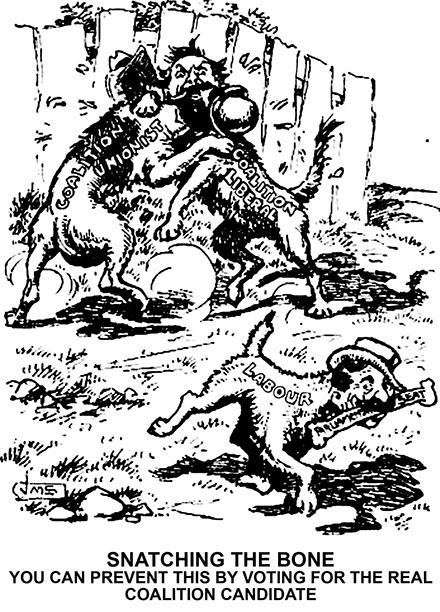
ELECTION 1918: THE CHARTIST LEGACY
By Peter Strong
‘In all quarters of the globe the tide of unrest is rising. It is as inevitable as the rising tide in the Newport river … In a world of caste and prejudice, where the extremes of wealth and poverty jostle each other in every city, there is a desire for Equality –equality of opportunity … The awkward conscience of the world is demanding justice for the disinherited; and because there are so many barriers of convention, prejudice and vested interest, there is unrest.’
These words came not from Chartist Newspapers such as the Northern Star or Western Vindicator in the 1830s and 1840s but from an editorial in the South Wales Argus on 18th December 1918.
The following day, the Argus, in words that would not have been out of place coming from a Chartist, commented further:
‘The red flag will float over a peaceful and bloodless revolution (the revolution is even now in progress) if parties and classes will banish fear and distrust.’
When people went to the polls in the 1918 election four days before this, they did so against a background of unrest comparable to the Chartist period. The election can also be seen as representing the achievement of the key aim of the People’s Charter –universal manhood suffrage. It is therefore perhaps surprising that there seems to have been no attempt by the Argus during its reporting of the campaign and its aftermath to compare 1918 to 1839.
Nevertheless, some connections can be deduced from the paper’s coverage. Much was made of the increased size of the electorate. As a result of the 1918 Representation of the People Act Newport now became a constituency in its own right. 40,146 people were registered to vote -24,612 men (including 8,802 servicemen) and 15,534 women.

Reference was made to the ‘many ladies of an advanced age’ who were enthusiastically voting for the first time. There was apparently ‘great rivalry to be first to vote’ and although 12 elderly women were waiting outside the polling station in Archibald Street when the polls opened at 8 o’clock, the contest seems to have been won by an 83 year old who had been allowed to vote at Bolt Street School a few minutes before eight. Some of these ladies would have been living in Newport at the time of the Chartist Rising 79 years previously, and some may even have had memories of it.
There can be little doubt that when Margaret Meggitt, Labour Party activist and the first female member of Newport Trades and Labour Council, cast her vote at Eveswell School on the stroke of 8.00, she will have been well aware of the Chartist heritage that had led to this point in history.
The new arrangements did throw up some unusual situations. Sir Ivor Herbert, former MP for South Monmouthshire, had voted in previous elections –presumably for himself- while his wife had not been able to. Now the roles were reversed. Sir Ivor had been elevated to the peerage as Lord Treowen so no longer had a vote and stayed at home while his wife went off in the motor car to cast her ballot.
Many old Chartists had ended up in the radical wing of the Liberal Party. They would no doubt have been pleased with the elderly widow at one Newport polling station who, having completed her ballot paper, asked for ‘the Lloyd George box’. Having been directed to the ballot box she commented:
‘There, it’s done. He gave poor ______ his old age pension, and one of the last things he told me was that if ever we had votes for women to pay him back. God bless him. I am happy.’
A letter that brings to mind the old Chartist slogan ‘Peacefully if we may, Forcibly if we must’ was published in the Argus on 17th December, three days after the poll but before the votes had been counted. Mr J M Robert of Risca criticised attempts to label the Labour Party as ‘pacifists’ and issued a warning that ‘a day of reckoning will not be far distant’ if trade union leaders
‘get weary of their efforts to get something resembling justice for the toiling masses by constitutional means… the great trade unions of this country may be faced with the demand to … seek to obtain by force and defiance of law what they fail to secure by the ballot box.’
The Newport seat was won by sitting MP Lewis Haslem (Coalition Liberal) with 14,080 votes, while Labour’s William Bowen came second with a creditable 10,234. Although many old Chartists may have welcomed the victory of Lloyd George, the composition of parliament was a long way from what they would have wanted, with Conservatives (Coalition Unionists and Independent Unionists) winning 384 of the 707 seats, leaving Lloyd George’s coalition heavily dependent upon their votes.
After the votes and been counted and the results declared the Argus commented that:
‘Lloyd George has won a great personal triumph; but he has been given this tremendous victory because the electors of the country believe that he is capable getting things done, and as he succeeds or fails he and those who are associated with him will be judged.’
The events of the next few years were to demonstrate that the Chartist dream that winning the right to vote would bring about governments that would automatically serve the interests of the working class was not borne out in reality.
Western Mail cartoon 14th December 1918.









